Effect and influence of the Iranian revolution on global geopolitics
Iran's Islamic revolution came about mostly in response to US influence in the country. That is not to say that America was the greater evil in the league of successive modern super powers.
But this was the power running the show in this country according to comments by an embittered US diplomat.
The comments were made days after Ayatollah Ruhollah Khomeini returned to Iran in February 1979 when demonstrators briefly attacked the US Embassy in Tehran.
As he prepared to leave Iran the US diplomat said: "We used to run this country. Now we do not even run our own embassy".
The trends continued to a point where the Iranian revolution could be called a movement against the American world order.
This is evident in the regional and global geopolitical change that has come about since the revolution, which was conceived as a dialogue determined to change Iranian society, politics and economy,
With the British withdrawal from the Persian Gulf in 1971 Iran had become the cornerstone of America's security architecture for protecting Western interests in the region.
As both the pivot in the price hike and the sole regional leader willing to break the Arab oil embargo, the Shah had made himself equally consequential for energy markets and the global economy, according to the Brookings Institute.
To both the British and Americans Persia, or Iran, was literally a geopolitical gold mine; rich in oil, it lay between Russia (the USSR) and the warm waters of the South leading to India.
And from an East West perspective, Iran still remains the nexus between Asia and Europe.
In the aftermath of the Second World War, a bipolar system was formed gradually by which the world was economized by the powers, the US and the Soviet Union, capitalism versus communism.
It was almost as if no nation could even imagine independence.
However, some might involve themselves in serving dependent seeking movements from time to time; their endeavors would merely result in them going under the influence of the Soviets instead of the Portuguese.
Many examples of this could be seen at that time in the world.
Javad Mansouri, Historian
However and from whichever angle you look at it, the Islamic Revolution of Iran brought immense political loss and shock to the Anglo Saxon ‘empire’.
What comes as a surprise, however, is how anyone might have been shocked by the revolution when rumblings of trouble in Iran had been evident for years, especially in 1978, the year running up to the revolution.
Yet, the then US President, Jimmy Carter, who was fully aware of the ongoing trouble called Iran an island of stability in a turbulent corner of the world.
That was in 1978 the year before the revolution and the final flight of the Shah from Iran.
The Iranian revolution may have come as something of a surprise since, unlike most revolutions, it occurred when the state was far from weak by any stretch of the imagination.
The outcome of the revolution was unimaginable for them.
Reports released by various American entities during the revolution, both the US Central Intelligence Agency, the CIA, and the State Department, indicated that things had happened in Iran and developments were underway, but not as fast as they had surmised.
Some of the reports even conjectured that the Pahlavi regime would remain in power, at least for the next decade.
This is in effect indicative of the fact that the American equations had failed to predict the developments in Iran.
Mahdi Fazaeli, Political Analyst
A study published in the CIA's in house journal concluded that it wasn't insufficient information causing the fiasco of US policy towards Iran from 1978 to 1979.
In fact, the US had compiled a substantial amount of accurate information and analyses regarding major events in Iran, particularly the anti Shah protest marches and riots.
Despite everything America was taken by surprise when the unrest actually grew into a large scale sweeping revolution, which left US President Jimmy Carter with a new reality.
Recently declassified information has documented the Carter administration's efforts to broker a peaceful transition directly with Imam Khomeini, founder of the Islamic Revolution of Iran, after the Shah of Iran, Mohammed Reza Pahlavi, had left, did not get him or anyone else very far.
This brings to the fore a lingering question as to whether Imam Khomeini made use of support by external powers, whether left or right, to gain power then carry out his own agenda, or whether he had no such support to begin with.
Neither the Americans nor anyone else expected a revolution of such epic proportions, at least not so suddenly and not so soon or to have such nationwide support its founder.
At home, for many an American, the uprising in Iran intensified the sense of futility surrounding America's role in the world.
The Islamic Revolution has faced the enmity of superpowers from the very beginning. They built a front against it. When we say superpowers we mean that the then Soviet Union joined America against us.
While differing on numerous issues, these two superpowers accompanied each other on confronting the Islamic Republic, the Islamic Revolution and the system [which] emerged from Imam Khomeini’s efforts.
The European powers and their followers such as the regional rogue states and others are the same. They built a front against the Islamic Revolution.
What is the reason for this enmity? We should never forget this point. The reason for this enmity was simply that the Islamic system had rejected the norms of the domineering regime.
Ayatollah Seyyed Ali Khamenei, Leader of the Islamic Revolution
One of the outstanding features of the nature of the revolution has been remains fighting arrogance. When the revolution succeeded, the most formidable US base in the region was crushed. The base the Americans revered as the paragon of stability.
Based on research by American scholars that have been released as books, even as early on as in November 1978, almost 100 days before the victory of the Islamic Revolution, this outcome wasn't unimaginable for them.
When the Pahlavi regime was toppled and the greatest US stronghold in one of the world's most sensitive regions, both in terms of energy supply and geopolitics, American grandeur was hit severely and Washington was badly struck.
Mahdi Fazaeli, Political Analyst
Against other modern powers, whether before or parallel to it, America, one could say was a benevolent power, so why did the Imam think to revolt against the Shah and the American order?
Back in 1964 Imam Khomeini never spoke of a revolution what he sought was primarily a reform movement. He even advised the Shah, telling him to stop being a US lackey and practice dignity. He would also advise the army, he would never support armed resistance.
Every time armed insurgents sought the Imam's advice on armed conflicts, he would overrule such conflicts outright. I was witness to many such occasions.
So it is very safe to say that Imam began as a reformist back in the early 60s. Later on, the Imam sought Islamic vigilance as an approach.
This might be a term used these days but it is a fact that the Imam's movement was substantially seeking vigilance by which people would be awakened towards Islamic matters or national interests and confront the Shah, with such vigilance.
Hossein Kanani Moghadam, International Anti-Zionism Association
Carter himself finally acknowledged this, lamenting: "Iran was not ours to lose in the first place. We don't own Iran, and we have never had any intention or ability to control the Internal Affairs of Iran".
What the US was left with was a black swan national security crisis, with a catastrophic impact on American domestic and foreign politics, Instead of merely seeking to deter Soviet influence via regional allies adjacent to the Soviet Union or socialists, greater Russia.
The United States would now have to contend with a hostile power in this strategically vital region.
At home, for many an American, the upheaval in Iran intensified the sense of futility surrounding America's role in the world.
This feeling had become prominent since the aftermath of the Vietnam War.
The New York Times, in an article published in March 1979, questioned how the Shah, a monarch who commanded more tanks than the British Army, more helicopters than the United States First Cavalry in Vietnam, could be pressured so neatly out of power?
In effect, we demonstrated the world with a new model of revolution which is relying on the informed masses. The political, revolutionary, Shia Islam, which values martyrdom and relying on the leadership of political and religious Marja, which gave birth to a new source of power in the world.
Maybe some people still don't understand the power of these three elements. When joined together, this power has literally dismantled the basics of the West's ideology both before and after the Islamic Revolution.
Javad Mansouri, Historian
When Iranian sentiments were stirred by uncalled for US interference during what has come to be known as the 1953 coup, which ousted the democratically elected oil nationalization era Prime Minister, Dr Mohammad Mossadegh, to strengthen the position of the Shah.
Declassified documents released in 2017 revealed the CIA's central role in that coup via Operation Ajax, the UK also plays its part under Operation Boot.
The Americans replaced the British after the 1953 Iranian coup d’état. Since then, the Iranian people grudgingly remember the presence of Americans in the country.
More than 40,000 military advisors were in our country from the US with Americans involved in almost all the key sectors of the country and actually manipulated them.
Besides, the Shah himself was completely manipulated by them.
Under the dictatorship, and the conditions created by the SAVAK in Iran, with all the torture and disregard for human rights, such things were viewed by the Iranian public as being supported by the USA.
Mahdi Fazaeli, Political Analyst
After Iraqi dictator Saddam Hussein's attack on the recently established Islamic republic of Iran in 1980, America's physical presence in the Middle East or West Asia took on new colors.
It was cause to enter the region in support of Saddam especially since the war had spread through the Persian Gulf and threatened the oil pipelines.
Arab monarchies south of the Gulf sided with Saddam in their fear of an Iran that was both a regional power and now, a revolutionary regional power with a zest for toppling kings.
Much later with Saddam Hussein's terrible error in judgment, taking the bait and attacking Kuwait. Since then the US is grip became enduring in the Middle East.
The string of attacks in this region started in 2001 with Afghanistan.
The main point of interest here is how a capitalist power such as the US, previously happy to interfere and exploit the country economically in return for services and even technology, albeit without a user or service manual, was now having to come in guns blazing.
The string of invasive US military undertakings appears to have been a struggle by Washington to hold on to its interests rather than a show of complacent and titled power.
Former British Prime Minister Margaret Thatcher once said, quite rightly, that nothing is more dangerous than a falling empire. Perhaps the best example of this in modern times would be the devastating US wars in Afghanistan and Iraq.
Iran's revolution appears to have created courage also in the people throughout the region to revolt where they see fit when facing dictatorship, i.e. the Arab Spring that was triggered in 2010.
The emergence of Hezbollah in Lebanon, the moral boost provided to Shia forces in Iraq, the regional Cold War against Saudi Arabia and Israel, lending an Islamic flavor to the anti imperialist, anti American sentiment in the Middle East.
This was the most important byproduct of the Iranian Revolution, according to Mehrzad Boroojerdi, Professor of Political Science at Syracuse University.
Iran created Hezbollah in Lebanon opening the second front against Israeli ambitions, which has always been to take over everything from the Nile to Euphrates.
Recently, Israel has actually been voicing how it wants the Middle East to break down into small states. It appears that Israel has forgotten that it is itself an uninvited guest in this region.
The Imam (Ayatollah Khomeini) was an anti-Zionist figure right from when he said the Zionists were a cancerous tumour. Likewise, we do see that the anti Zionist resistance forces have performed in the region. And this is one of the ambitions of Imam that has been achieved as he had imagined, and today we have the Global Quds Day,... Imam was anti apartheid, anti racism and his foreign policy approach in dealing with South Africa, the regional issues and anti USSR when he sent a message to Gorbachev.
All these showed the structural transformation in East West relations.
Hossein Kanani Moghadam, International Anti-Zionism Association
As for the impact of various wars on Iran's extraterritorial influence, interestingly, Saddam's attack on Iran strengthened the revolution, giving it a firm base to export its message beyond Iranian borders because the Iranians united in their fight against an external threat.
The irony of the success of US attacks on this region in the early 2000s, on the other hand, is that the United States invasion of Iraq and Afghanistan eliminated Iran's two biggest rivals in the region, the Taliban and Saddam Hussein, and left Iran as the most important player in the region, which is why the Arabs are so scared. This all started with the revolution.
The Islamic Republic of Iran has no doubt changed regional and global politics. Before the fall of communism there was a West versus East scenario with players lining up on either side to win the support of either America or the Soviet Union.
But Iran came up with a scenario of neither East nor West. This appeals to an international audience watching and listening as Iran went from modernizing to attempting to adopt the simple lifestyle of the Prophet Muhammad.
Our revolution is a dynamic movement en-route to materialize its ambitions.
Theoretically, in every revolution various methods are adopted in order to reach an evolution, one such method is revolution within a revolution. As you see, the Imam occasionally named certain moves as a revolution bigger than the first revolution, like the takeover of the US Embassy.
So this means we are on the path to completion. We can never say the revolution is fulfilled.
Hossein Kanani Moghadam, International Anti-Zionism Association
How the early days of the revolution unfolded in Iran was that initially authority was inherited from Iran's final monarchy by a coalition of Muslim clerics, as well as leftists, and to a lesser degree, liberals, and the Islamic Republic that was established in the months following the revolution has held fast as a clerical system of governance.
Not surprisingly, it's swept in with a message of independence from foreign interference and oppression for Iranians and the world. And this appears to have given rise to, as well as inspired, Islamic and Muslim movements ever since.
After the victory of the revolution we witnessed a wave of Islamism throughout the globe.
Even in the region the wave is different in various countries, but both given the existence of the Zionist regime and their agenda, and given the conditions of the regional regimes in terms of their governance, the revolution's ambitions, which are human ambitions, are not limited to the geography of Iran.
As we and many scholars maintain that the French Revolution was not just a French Revolution, the Islamic revolution was also not just an Iranian revolution but an Islamic movement whose ambitions may be welcome anywhere in the world.
Mahdi Fazaeli, Political Analyst
The Iranian revolution can be seen as an anti American movement, which despite its confrontation with the world's largest military power, has been able to gradually reach a point where militarily the courage to confront Iran has vanished.
Also, economically Iran is turning a corner and once it passes that corner there should be no other special weakness left for the Americans to exploit in its endeavors against this country.
After the 2009 sedition regarding certain signs within the country that were transmitted to the Americans, the new US strategy was maximum pressure, as it felt that the Islamic Republic of Iran had weak points in this field [sic].
They believe by putting pressure on the weak points, they would have reached their goals and defeated the Revolution by placing people before the establishment.
Such economic pressure would end people's resistance, in which case, they would stand against the revolution and the US goals would be reached from within the country. This never happened.
Of course, we did witness events which were primarily caused by a lack of prudence on the part of the previous administration, like the gas related events and the like. Anyhow, the results pursued by the Americans wouldn't be realised.
As I told you, the American State Department spokesman explicitly announced that Washington's maximum pressure policies had failed terribly and the three goals designed by Trump for the policies had also failed.
Mahdi Fazaeli, Political Analyst
Looking at the way things are going, Iran's economy might soon grow by five to 7% or inflation might come down to 20%. So we're at the source of an economic turning point.
Would you say that the economic war the US has waged against us is going to pay off for the US henceforth?
Since the year 2000 the Americans have been pursuing a hybrid war against Iran; there is an intelligence war, physiological war, economic war, economic terrorism, military war, terrorist groups as well as cultural and scientific war.
They are working on all fronts, some time the maximum pressure policies that are introduced by Obama and then Trump and then Biden only change the severity of the indices of the wars, while some times the control index is stronger while economic aspect of the war come slower, other times the economic war becomes stronger and the military war becomes weaker.
Hossein Kanani Moghadam, International Anti-Zionism Association
The Islamic revolution of Iran in comparison with other famous revolutions is unique in that despite the passage of 43 years it has stayed in keeping with its ideals, although it may have difficulty in fully achieving those ideals.
The fact of the matter is that none of the schools of thought in the world, including liberalism, capitalism, secularism and socialism, have all failed to be revered as before [sic].
The West is very sorry [worried] about this because they feel Islam is replacing them. ... a book entitled as 'the end of the US theorem', which says: "we have nothing to tell the world anymore, even inside the country, there is no possibility for us to survive. All our survival factors have been destroyed inside the country and outside. We have lost our eligibility".
Javad Mansouri, Historian
There are many countries which made revolutions and revolted against domination, arrogance, oppression and tyranny but after a short time, some after 5 years and some after 10 years, they totally returned from the path they had taken and again followed the path of their predecessors and became similar to them.
The reason was that they lacked a solid intellectual foundation. That is why we see the term de-ideologizing in the words of foreigners and unfortunately some insiders who are followers of them.
The intellectual foundation of Iran’s Islamic Revolution, which has Islamic basis, is in fact the main enemy of the dominators.
Ayatollah Seyyed Ali Khamenei, Leader of the Islamic Revolution
Over 1,000 patients have died awaiting evacuation from Gaza since July 2024: WHO
‘Profound moral aberration’: Iran slams US sanctions on ICC judges
Egypt’s gas deal funnels $35bn to Israeli coffers
Yemen rallies against Qur'an desecration as tens of thousands march in Sa’ada
‘Grotesque colonial fantasy’: Venezuela's UN envoy hits back at Trump over oil remarks
Farmers say EU leaders ‘don’t care’ about real problems
Iran unveils advanced simulator covering 300 civilian, military ships
VIDEO | Press TV's news headlines


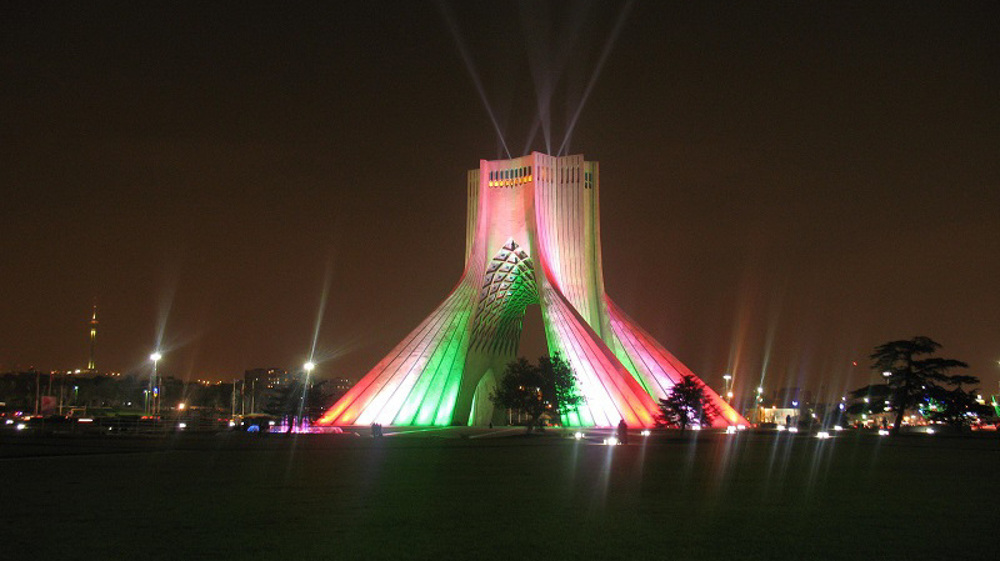
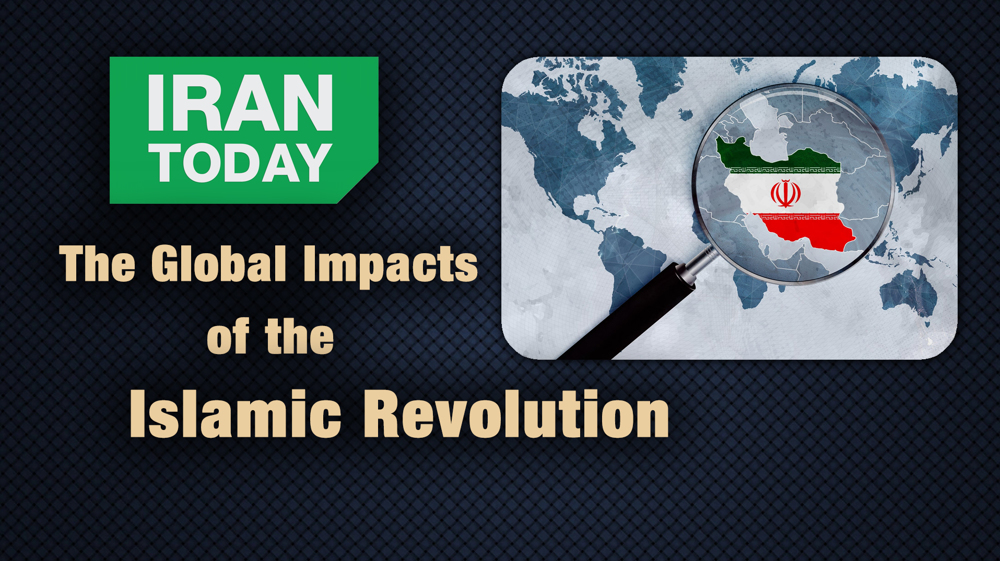
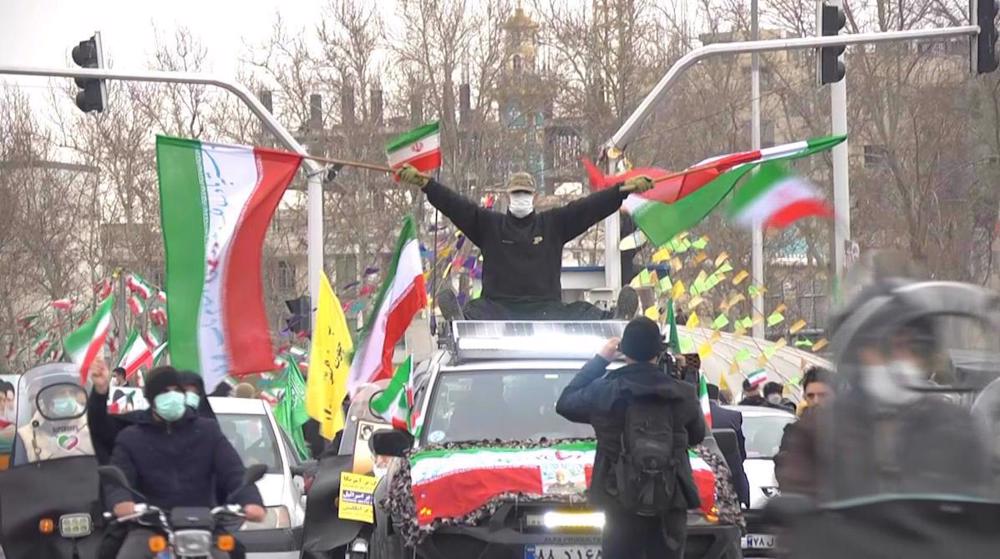
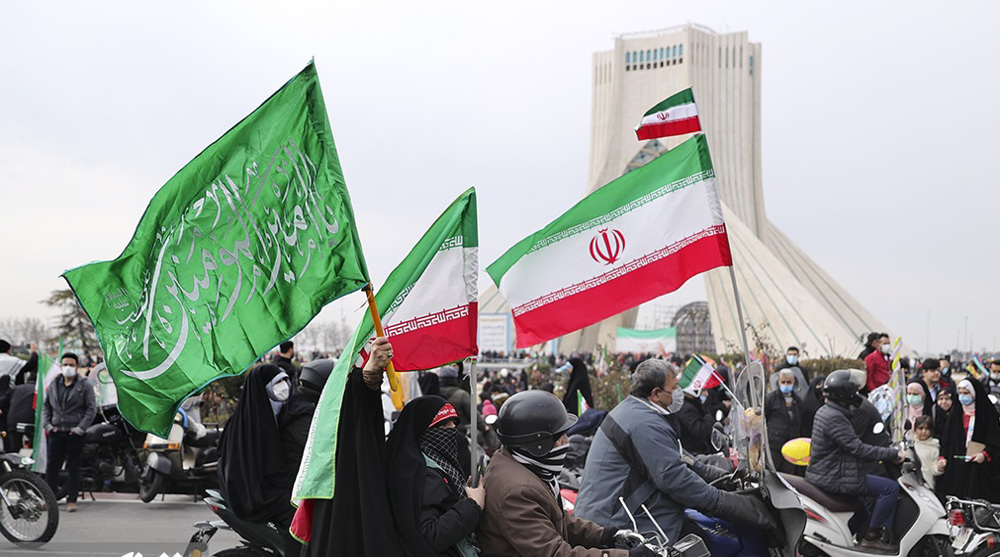

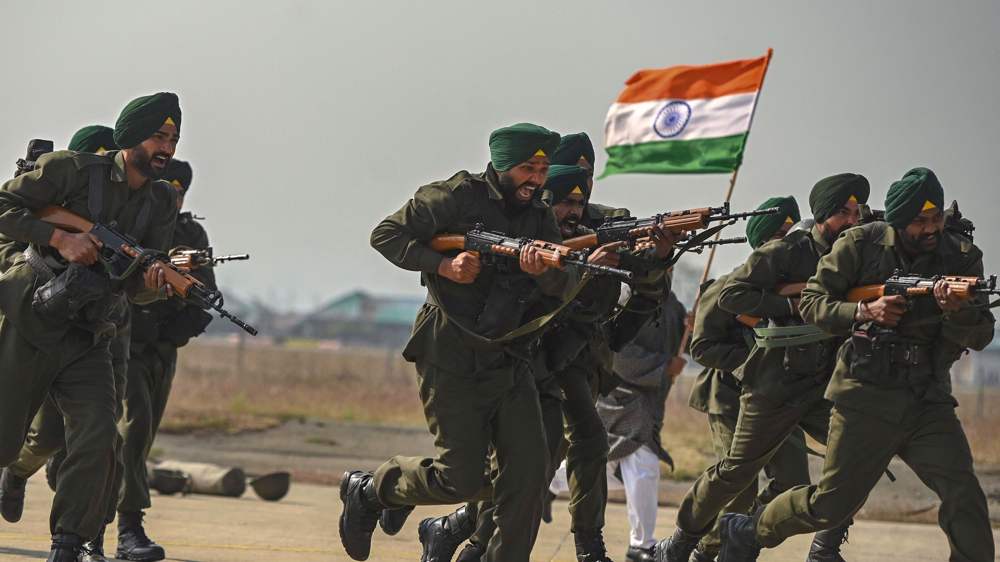
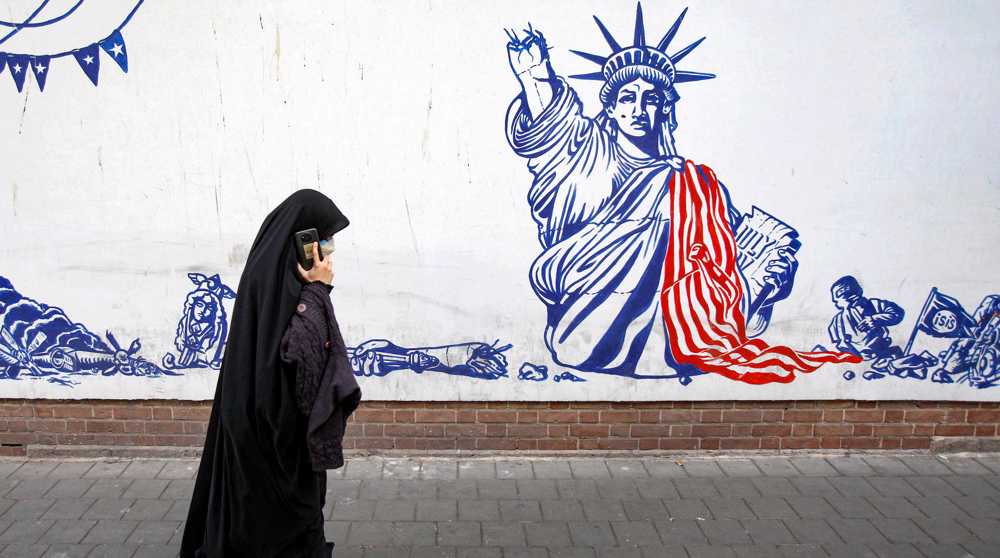
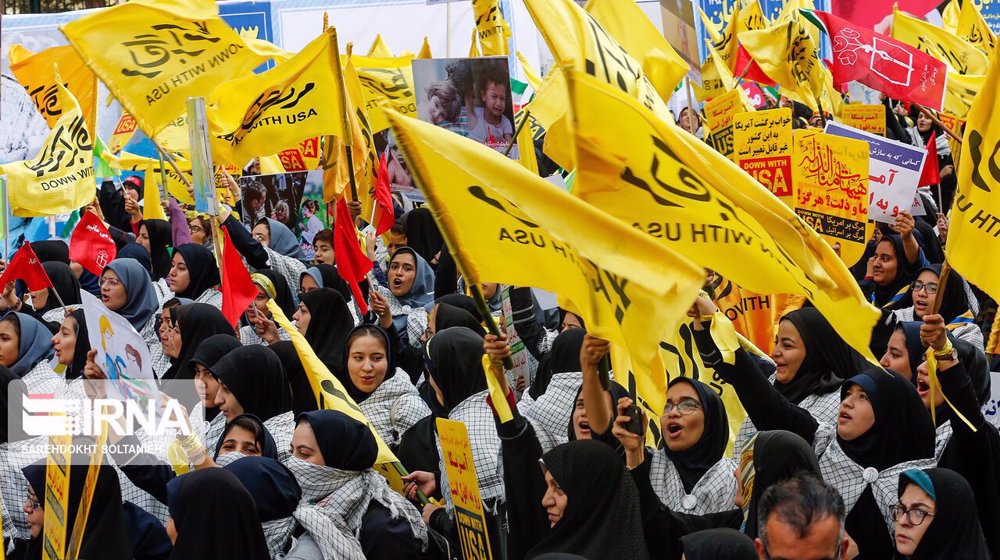
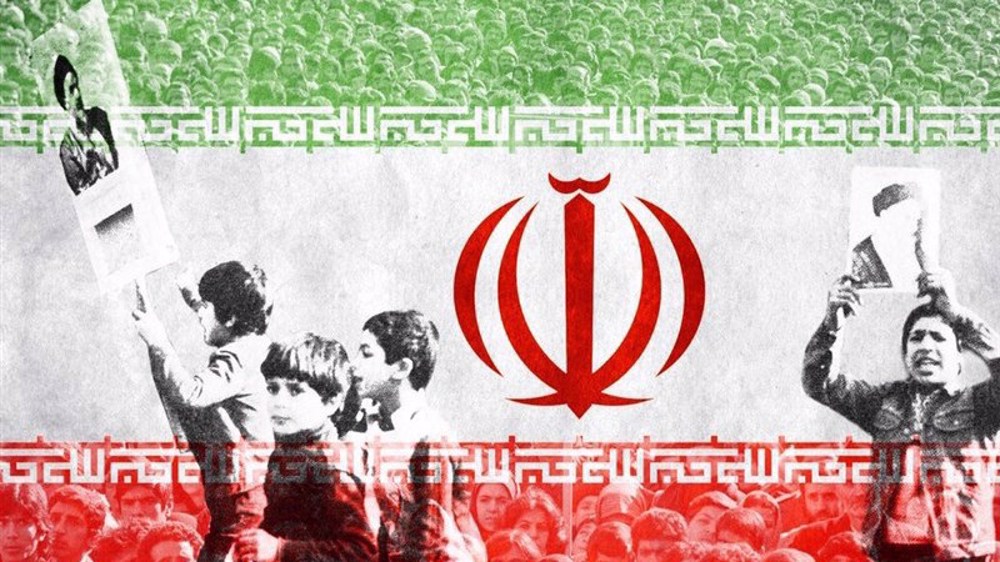
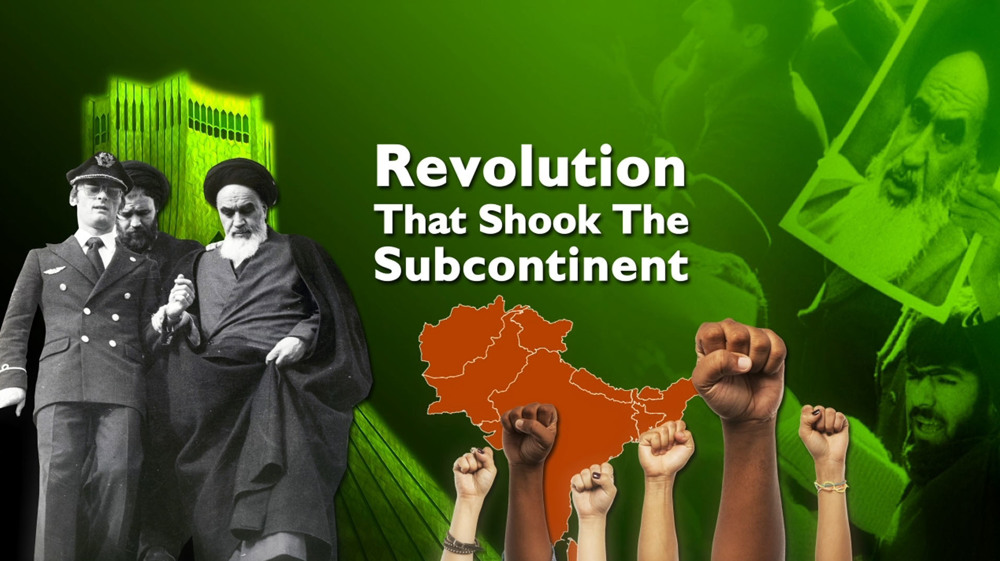
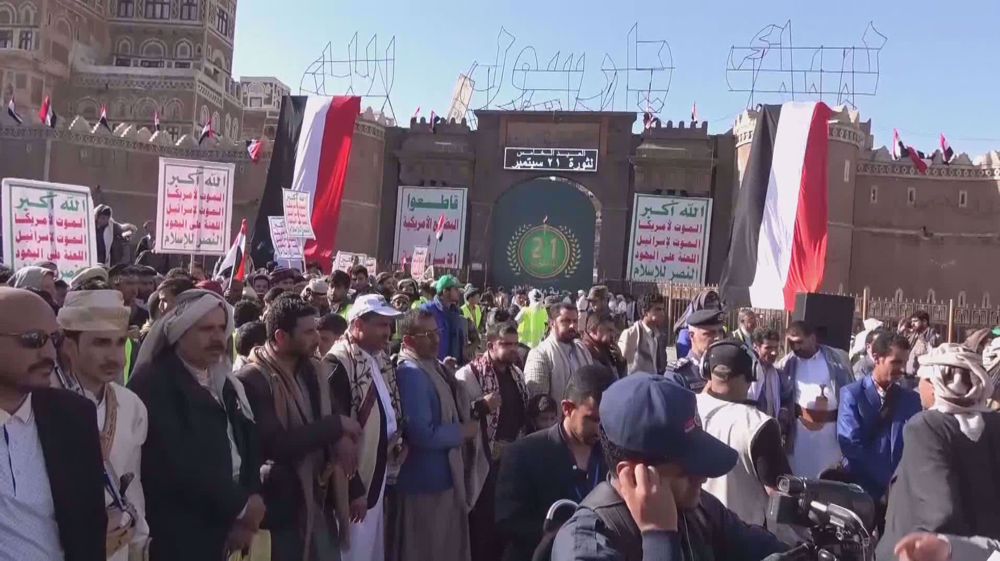
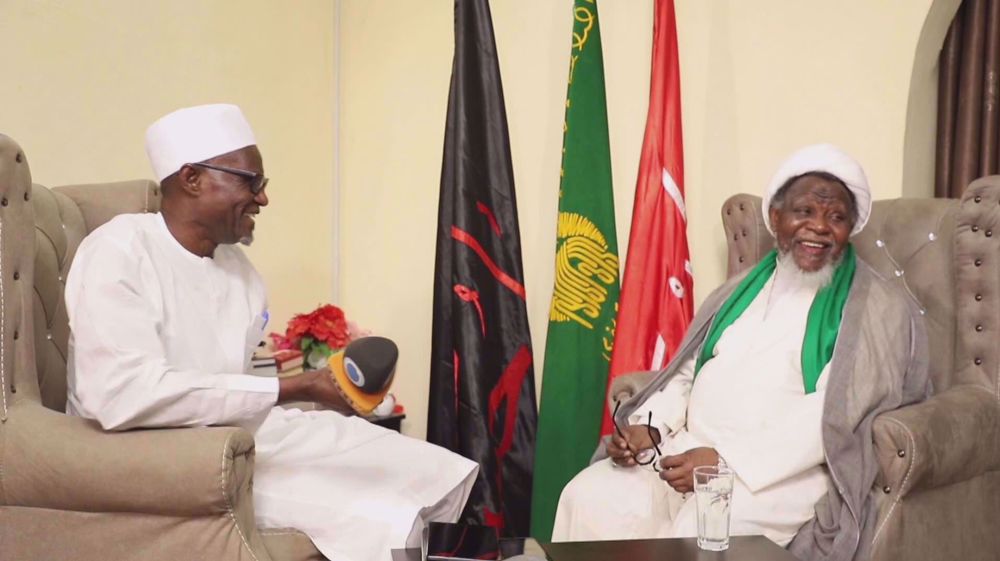
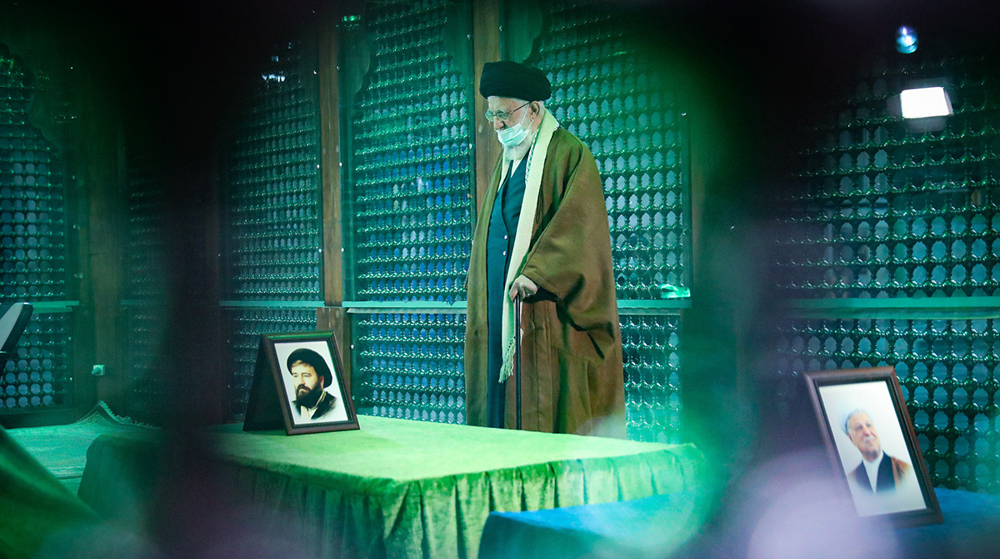

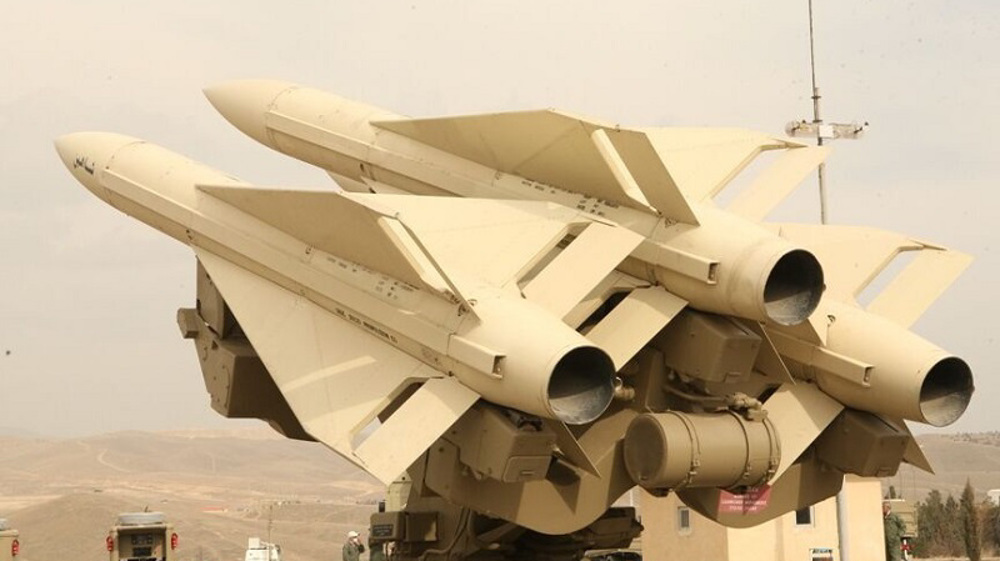






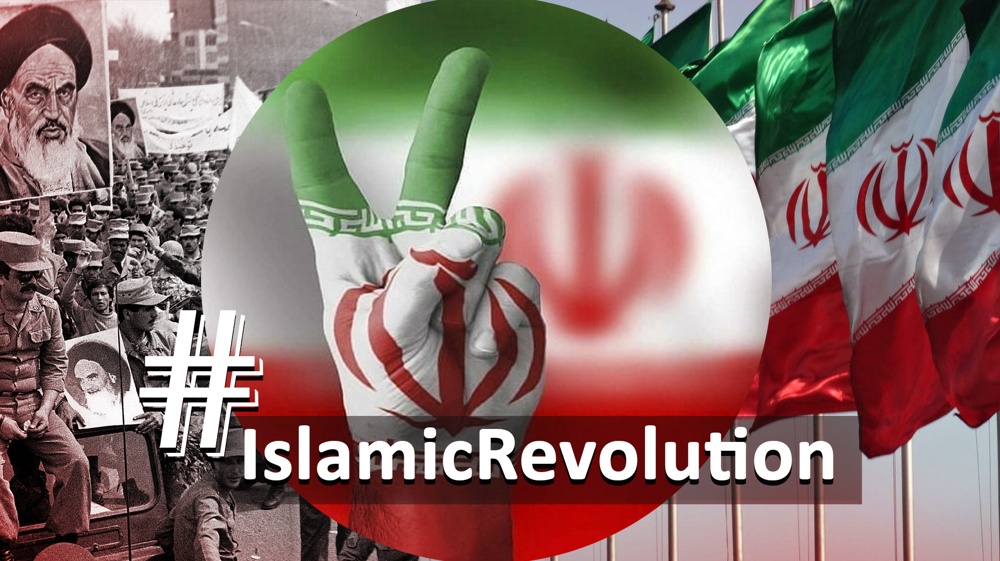
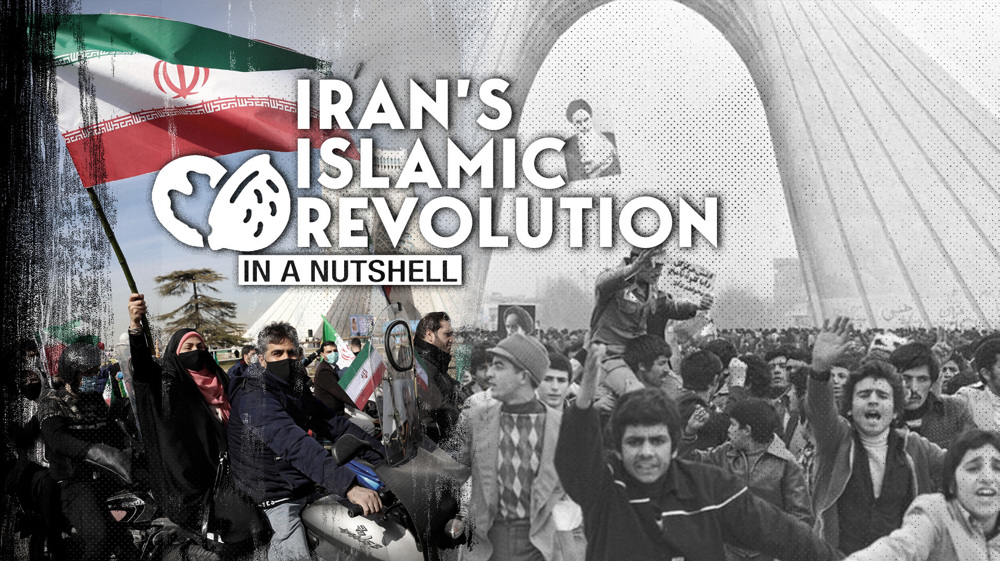
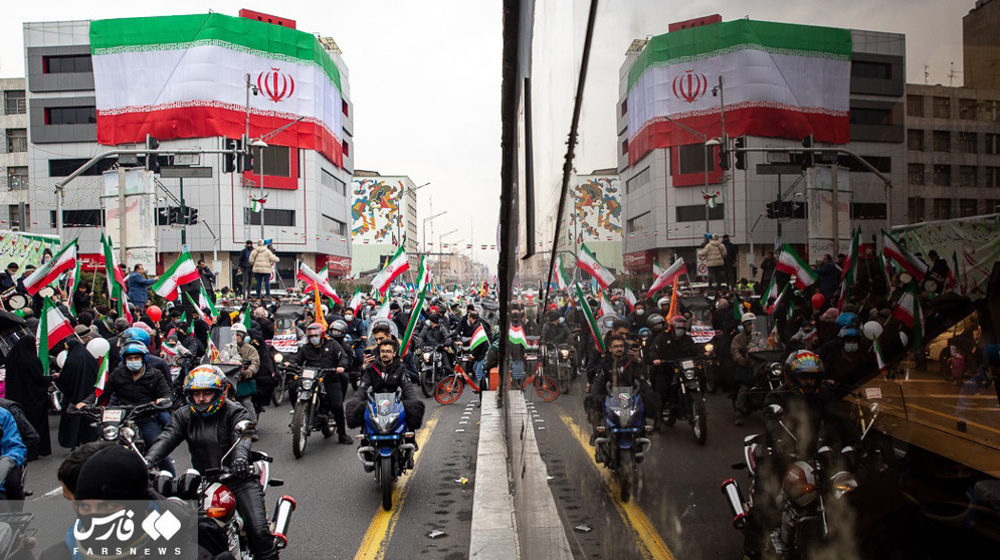
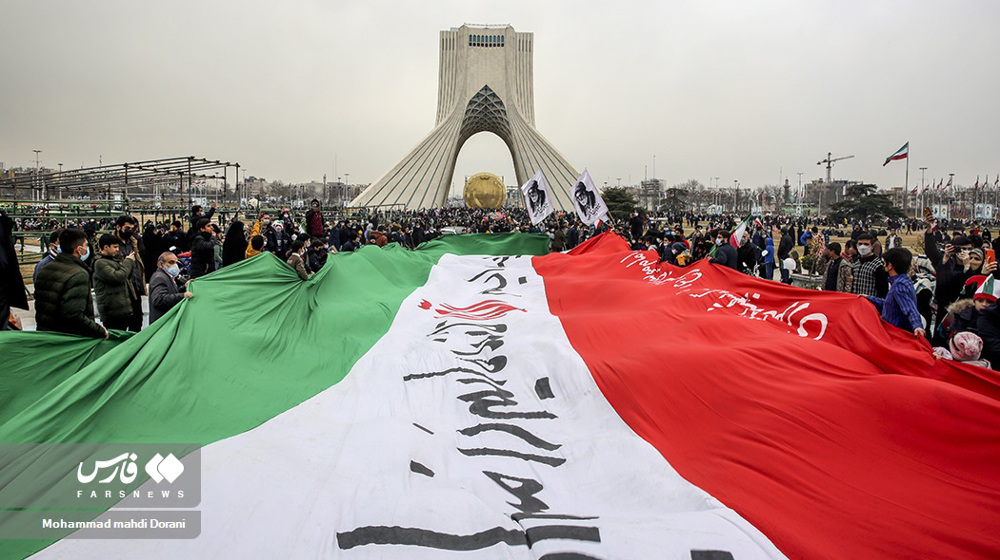
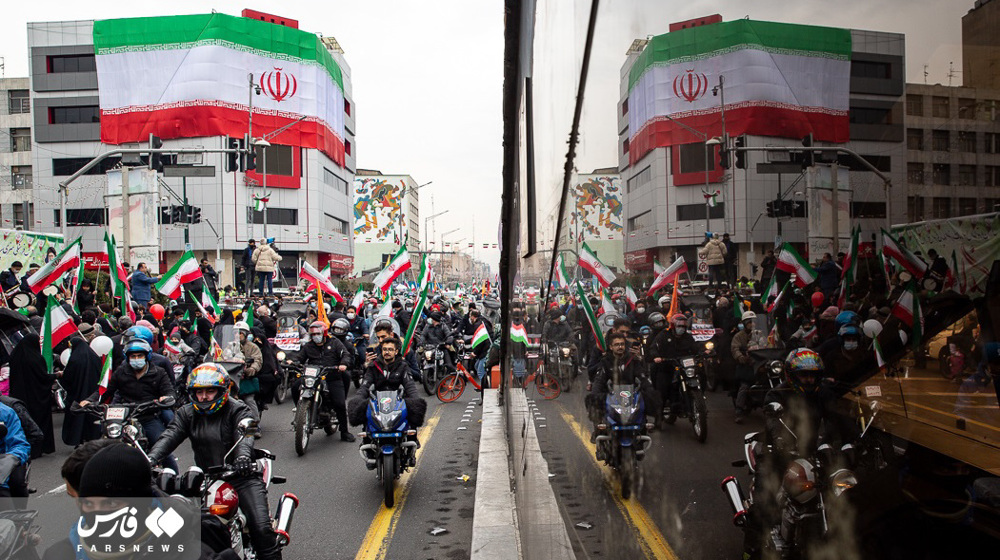
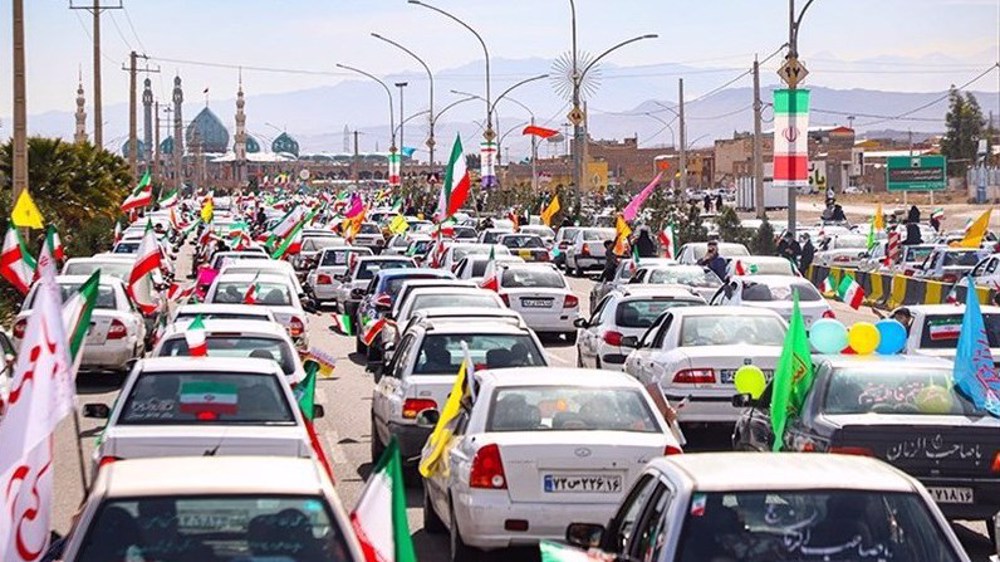
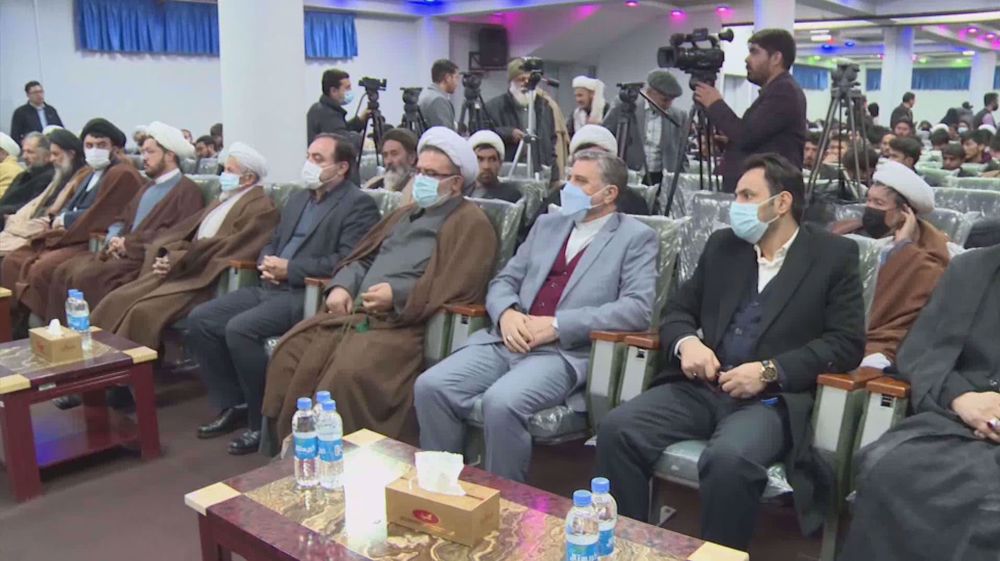
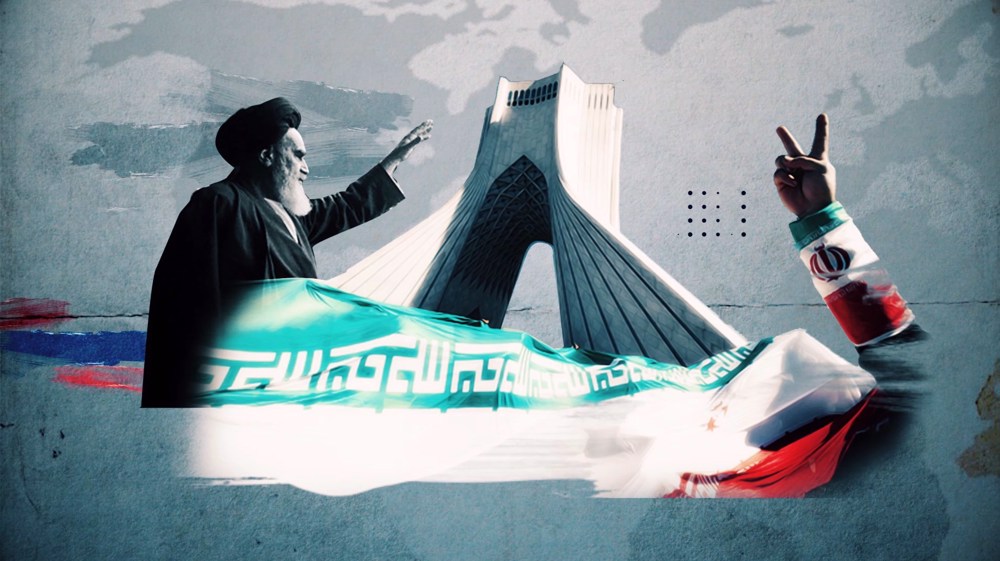
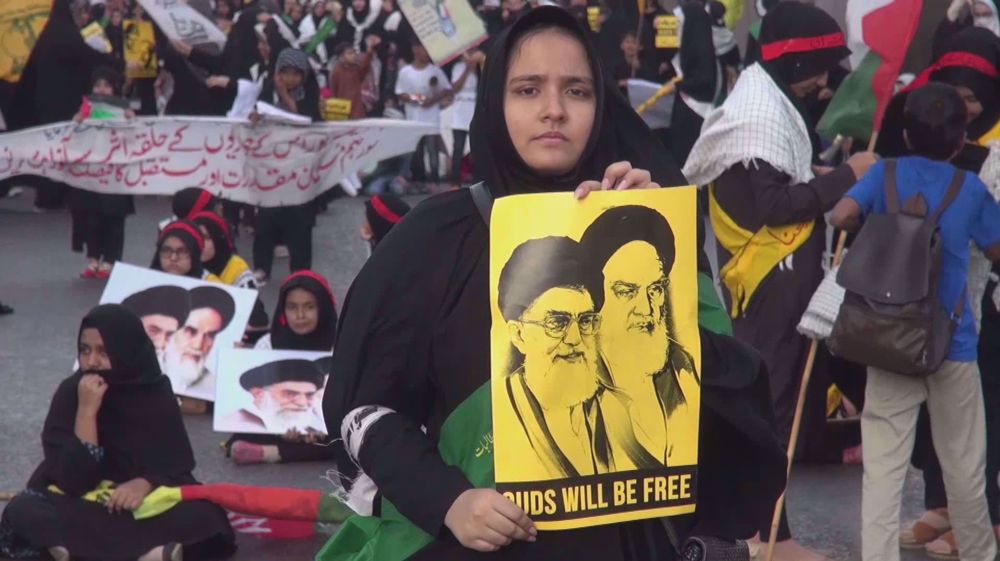

 This makes it easy to access the Press TV website
This makes it easy to access the Press TV website